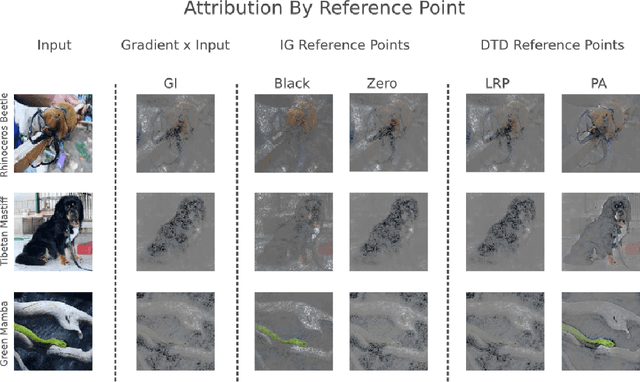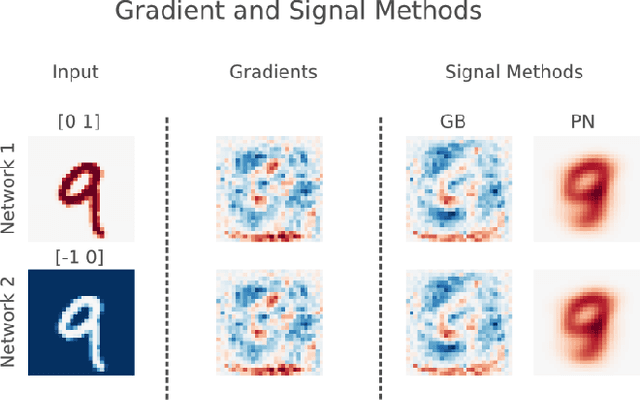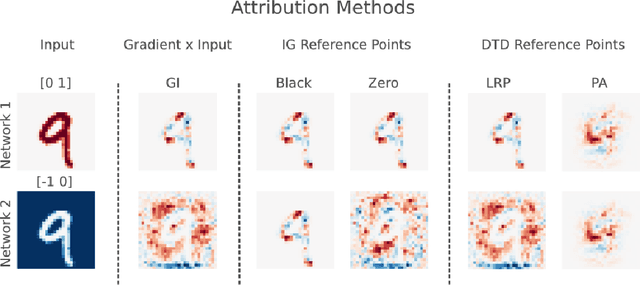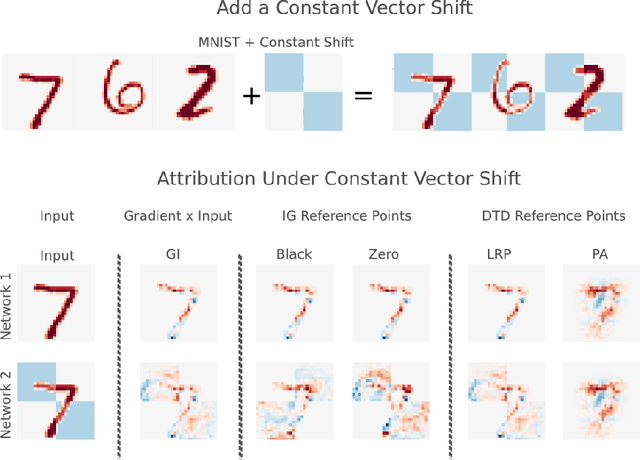The (Un)reliability of saliency methods
Paper and Code
Nov 02, 2017



Saliency methods aim to explain the predictions of deep neural networks. These methods lack reliability when the explanation is sensitive to factors that do not contribute to the model prediction. We use a simple and common pre-processing step ---adding a constant shift to the input data--- to show that a transformation with no effect on the model can cause numerous methods to incorrectly attribute. In order to guarantee reliability, we posit that methods should fulfill input invariance, the requirement that a saliency method mirror the sensitivity of the model with respect to transformations of the input. We show, through several examples, that saliency methods that do not satisfy input invariance result in misleading attribution.
View paper on
 OpenReview
OpenReview
 Add to Chrome
Add to Chrome Add to Firefox
Add to Firefox Add to Edge
Add to Edge